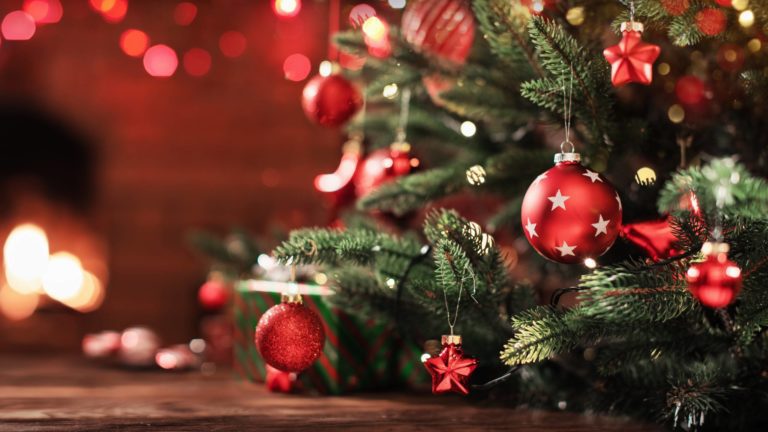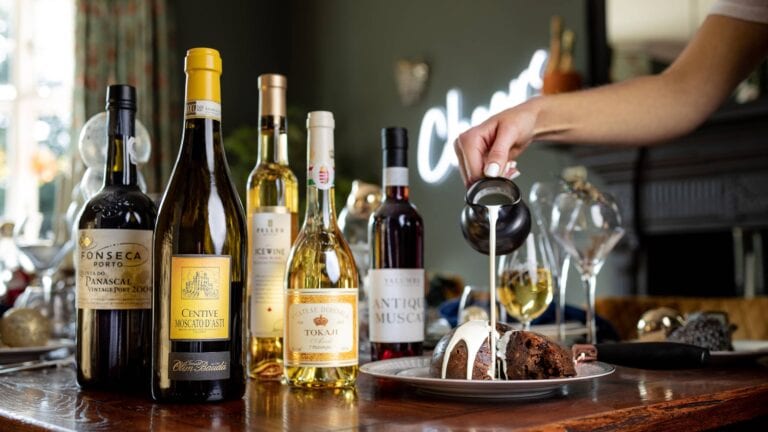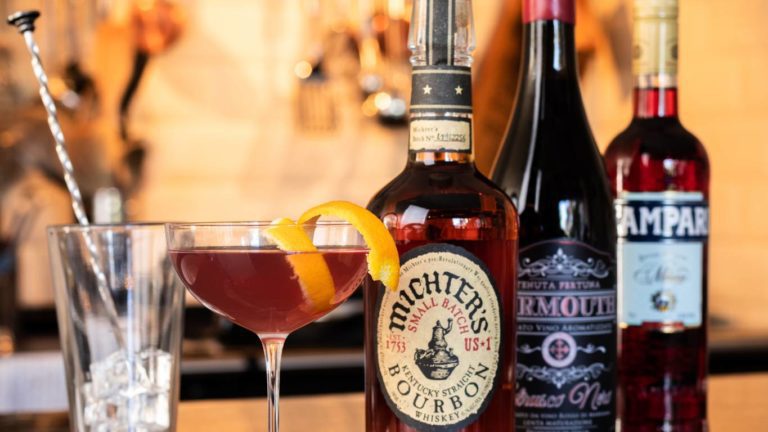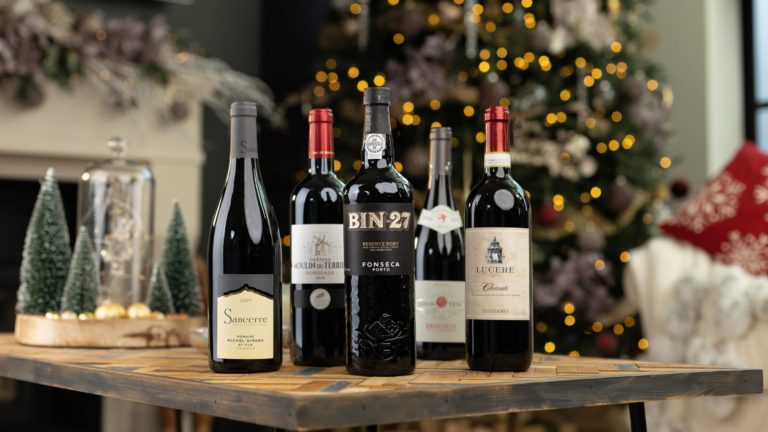From Londoners drinking the most at Christmas to Scotland cheating at Dry January, we reveal the UK’s attitudes to alcohol over the festive season!
We asked a total of 5,000 people across the country about their typical habits and future plans when it comes to Christmas and alcohol. While it may come as no surprise to hear that eggnog and Brussels sprouts are the most hated food and drink, our survey found some noticeable differences in our festive drinking habits and Dry January plans. Here’s what we found…
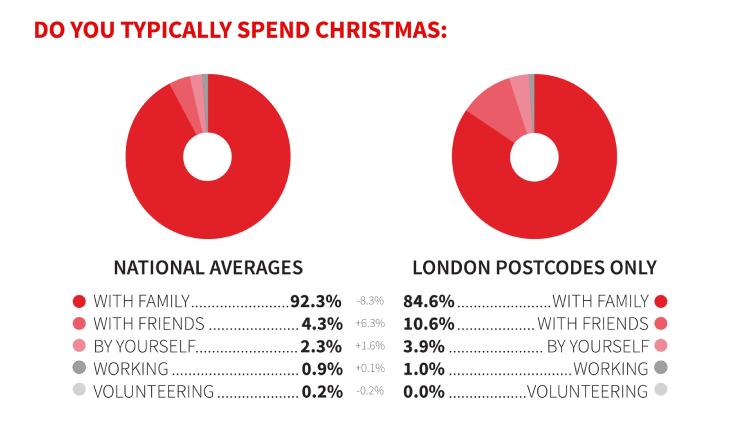
Christmas is all about spending time with the people you love, but what happens when alcohol is thrown into the equation? Well, our survey revealed that people who spend Christmas with friends are more likely to drink ‘a lot of alcohol’ (47%) than those who spend it with family (35%) or alone (28%). When it comes to a festive party, it’s clear our friends are the ones we want to party with. Those from the capital are most likely to spend Christmas with their friends, with 10.6% of Londoners having a friend-focused Christmas – more than double the national average of just 4.3%. Across the board, most of us spend Christmas with family. .
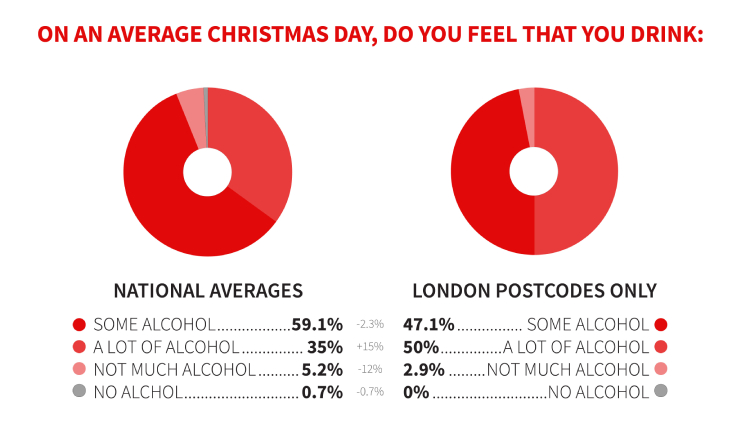
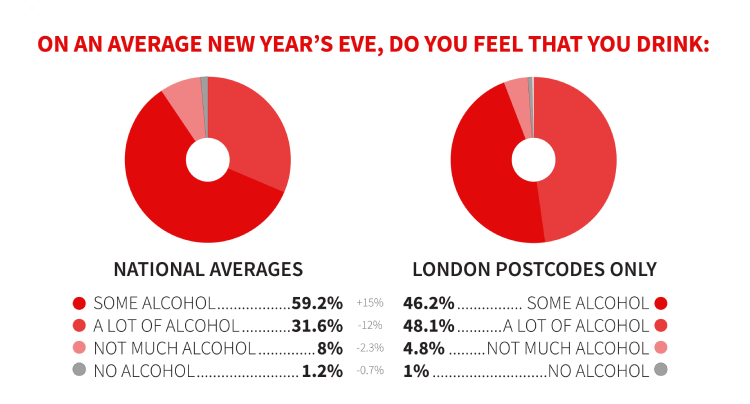
As we all know, the festive season is a time of indulgence and across most, if not all households, conversations will be had about eating too much! The same story applies with how much we drink, with 35% of us admitting to drinking ‘a lot of alcohol’ at Christmas, and 32% saying the same of New Year’s Eve.
However, it’s Londoners who are the biggest festive drinkers in the UK, with 50% admitting to heavy drinking on Christmas Day, and 48% doing the same to ring in the New Year. Given that Londoners are more likely to spend Christmas with friends over family than the rest of the UK, perhaps it’s no surprise to hear that they also consume the most alcohol on the day itself.
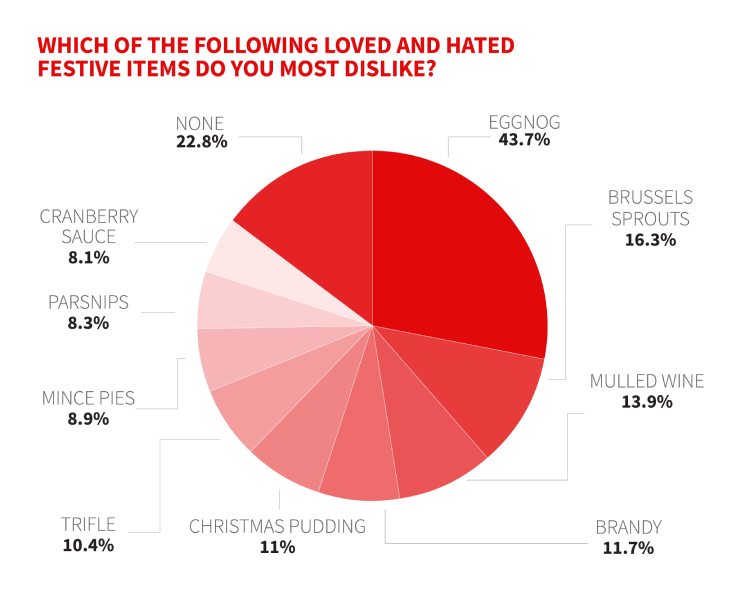
Eggnog is the most-hated festive food or drink choice by a long shot, with almost 44% of survey respondents stating that they’d prefer to steer clear. Maybe it’s because they’re the biggest festive drinkers, or because eggnog tastes better when shared with friends, but only 27% of Londoners agreed that it’s something to avoid over Christmas and New Year.
London respondents are also more keen on mulled wine than the rest of the UK. While the national average suggests 14% of us don’t enjoy mulling a good Christmas vino, only 7% of Londoners would turn a glass of mulled wine down.

You’re more likely to see these at weddings, but it appears ‘Pimp my Prosecco’ bars, which have risen to popularity in UK, are now considered by some to be a ‘festive must-have’. Under 35s (25%) and female respondents (23%) were the most likely to agree, while 91% of over 55s felt that they were a ‘must avoid’. They’re also more popular in the south of England than the north: 25% of Londoners love them, while only 12% of Yorkshire residents feel the same. More Scrooges up north..? We couldn’t possibly say!
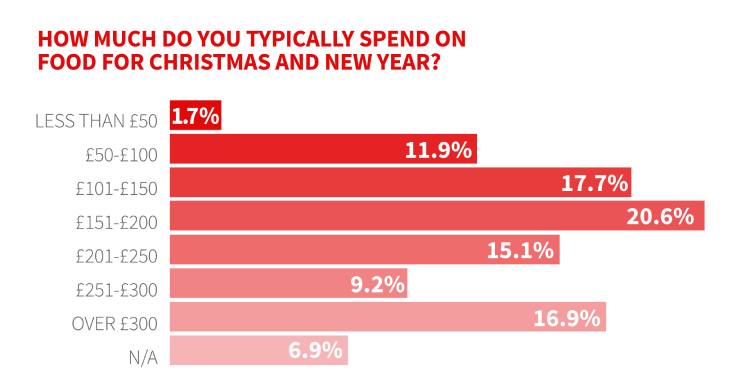
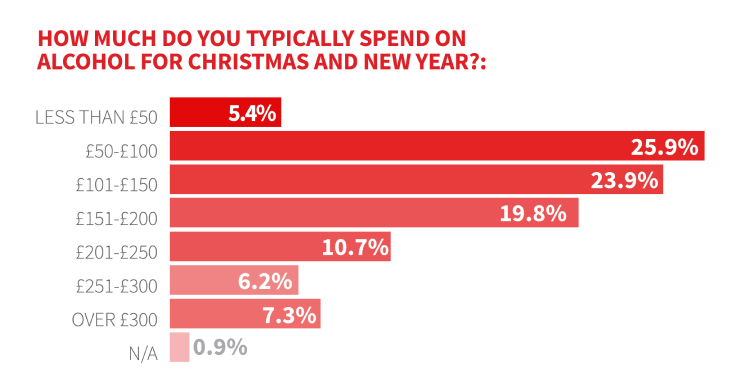
As we indulge more, we spend more, which is particularly true of the Christmas period. Unsurprisingly, for the most expensive city to live in the country, it’s London that spends the most on festive food. 23% of survey respondents in the capital admitted to spending more than £300 on food for Christmas and New Year. Across the rest of the UK, just under 17% of people spend this much.
Interestingly, it’s Wales that spends the most on alcohol, with 23% of Welsh respondents spending more than £250 on Christmas and New Year drinks, compared to 15% of Londoners and a national UK average of 13%.
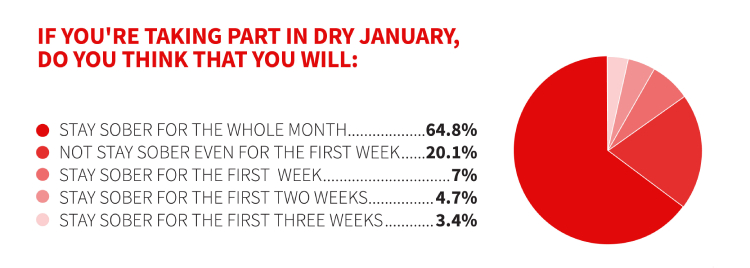
Dry January has really taken off in recent years and is often seen as a well earned detox. Honesty during Dry January and being able to see it through however is a completely different story!
The following stat will probably be of no surprise, and it involves the classic battle of the genders. Men were twice as likely to say they wouldn’t complete even one week of Dry January, with 26% saying they didn’t expect to stay sober even for the first week compared to just 13% of women.
The younger the respondent, the more likely they were to say they wouldn’t even complete one week of Dry January, while the older the respondent, the more likely they were to say they’d stay sober for the whole month. Younger respondents were also most likely to state that they would pretend they’d stayed sober all month, even if they hadn’t! The Scottish were also the most die-hard with their habits, with just over 60% planning to keep drinking as normal.

15% of respondents said that they’d pretend to complete Dry January even if they hadn’t – outrageous, we know. Scottish drinkers were the most likely to lie, with 20% admitting they’d pretend to succeed even if they’d been drinking, while only 7% of Welsh adults said the same. So, congratulations Wales for being the most honest!
England on the whole showed less willing than its neighbours in many respects. 21% of English adults said they’d give up on Dry January altogether if they slipped up and had a drink at some point, while 20% said they wouldn’t manage a full week sober in the first place. The only people less enthusiastic were the Scottish, of whom 24% said they wouldn’t manage a whole week sober in January, on top of the 20% who said that they’d pretend they’d completed Dry January even if they hadn’t.
The survey also found that 45% of adults in the UK plan to drink less alcohol or no alcohol at all during January, but 55% said that they don’t intend to make any changes to their lifestyle.


The Scottish were also the most die-hard with their habits here, with just over 60% planning to keep drinking as normal, and only 40% saying they plan to drink less alcohol or no alcohol at all during January 2020. For those who will be drinking less, Scotland had the highest percentage of people who’d rather drink alcohol-free beers, spirits and wines than opt for other soft drinks; 23% of Scots said they’ll be drinking low or no-alcohol versions of their favourite tipples over Christmas and New Year.
Taking advantage of the growing trend for low and alcohol-free wines is a great way to see Dry January through. Huge progress has been made in recent years to improve the quality of low and no alcohol drinks, with a growing number of genuinely great wines, beers and spirits becoming available. It seems a growing number are aware of this trend too, with one in five of us likely to opt for low and no alcohol versus standard soft drinks.
Thanks to everyone who took part in the Virgin Wines Festive Survey. Data correct as of November 2019.


